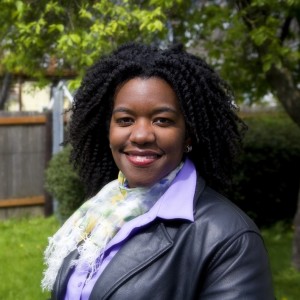My Path to Complementary and Alternative Medicine
By Marie-Sabine Thomas ND, LMP ’97
By the time I started my senior year at Mount Holyoke, I had gladly moonlighted amongst the various Five College Consortium course offerings. I had taken classes such as Biology of AIDS, Medical Anthropology, Sociology of Medicine, and Economics of Health Care. I had also interned at the New York City Caribbean Women’s Health Association and interviewed incarcerated women about their health at a jail in Ludlow, Massachusetts, for credit. In short, it was time to declare my major!
I was grateful that my advisor in the anthropology department understood that my interest could not be contained in one pre-structured mold. She guided me in designing my socio-medical sciences major with a minor in romance languages.
What seemed so foreign to my fellow pre-med classmates felt perfectly sound to me. I wanted to become a physician with the holistic philosophy of natural medicine and the rich span of tools it uses: nutrition, physical medicine, homeopathy, and botanical medicine, amongst many others.
A few years after my MHC graduation, my continued interest in social sciences, health, and medicine led me to attend medical school at Bastyr University’s School of Naturopathic Medicine (NM). Shortly after graduation from medical school, Bastyr awarded me a postdoctoral teaching fellowship
In 2009, I entered the world of research, when I received another postdoctoral fellowship from the National Institutes of Health’s National Center for Complementary and Alternative Medicine (NCCAM).
As a trained physician and a research scientist, the goal of my fellowship has been to investigate how conventional and complementary and alternative medicine practitioners (also known as CAM practitioners) interact with each other while caring for their patients. I was specifically interested in how this interaction (which some may call collaboration or integration) can affect the current health-care disparities witnessed in the United States and globally. I picked two projects.
In 1996, the state of Washington inaugurated the first national natural health medicine clinic designed to serve immigrant and low socioeconomic communities. These clinics are currently my “laboratory,” There are naturopathic physicians, medical doctors, osteopathic physicians, and nutritionists offering healthcare to Spanish, Russian, Arabic, and Amharic speaking communities in these community health centers. Sadly, there are marked disparities in the health care of these diverse communities, and I am interested in investigating how these medically, socially, and economically diversified community health centers the approached the disparities. That is project #1.
I also chose to explore perspectives about natural and traditional medicine and its place in the Haitian healthcare system. It is estimated that a large percentage of individuals in developing countries use indigenous medicine. In Haiti, even though 80–90 percent of the Haitian population utilizes traditional and natural medicine, traditional healers are not considered part of the status quo healthcare system. What if they were? That is project#2.
My interests in natural medicine have been brewing in my mind for a long time and were molded by my multicultural life experiences. My family is from Haiti, I was born and raised in the Democratic Republic of Congo (formerly Zaire), and I am now calling the USA my home. In each of these countries, there exists a disparity in access to healthcare and a paradox between what is considered conventional, evidence-based, researched, and proven versus the alternative, traditional, cultural, and sometimes unproven.
My time at Mount Holyoke College polished my critical thinking skills and enabled me to ask questions differently and hopefully contribute to filling gaps in the existing scholarship.
I look forward to practicing medicine again. However, before I pick up another stethoscope for a medical visit with a patient, I want to be better equipped to serve the patients. I want to understand what effect practitioners’ behavior in an integrated health system has on the patient’s health.
Therefore, I have chosen to approach this research through the lenses of the physicians’ and the patients’ words. I personally travel to physicians in the community health centers in Washington state. I also traveled to public health officials, medical doctors, and traditional healers in Haiti to capture their stories.
My training as a naturopathic physician has also given me the opportunity to feed my personal interests by working on various side projects; supporting urban community garden projects in underserved Seattle neighborhoods creating medicinal gardens in a Haitian botanical garden. I love what I am doing!
The author would like to state that the opinions shared in this essay are solely hers and not those of the National Center for Complementary and Alternative Medicine. The research cited is supported by NIH/NCCAM Grant No. T32T00815.
January 17, 2012







